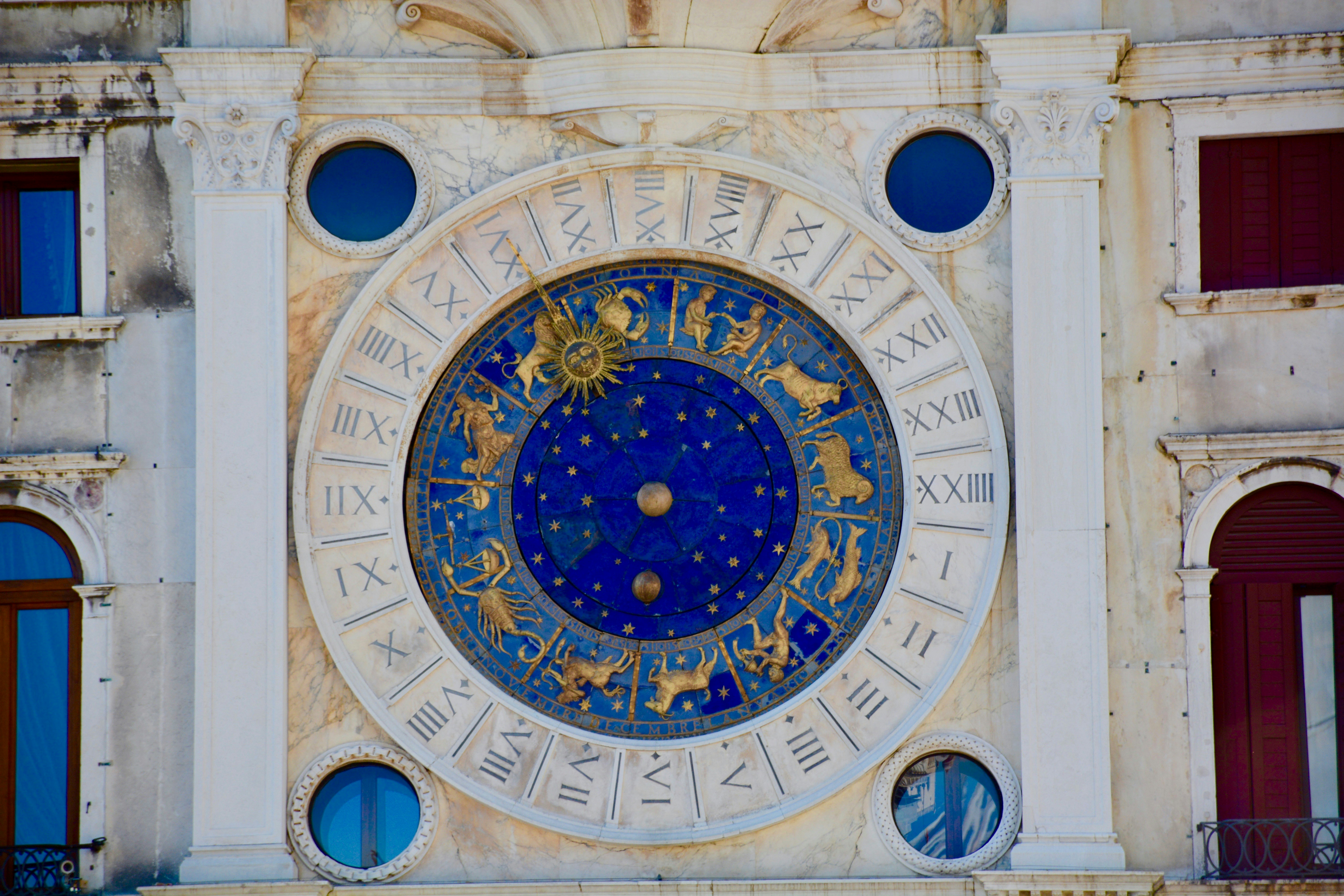In this article, we will explore the difference between astrology and zodiac and gain a deeper understanding of their meanings. We will explore the origins and purposes of both astrology and zodiac, and how they are often used interchangeably but carry distinct meanings. By the end of this article, you will have a clear understanding of the differences between astrology and zodiac and be able to use these terms accurately in conversations and discussions.
Astrology
Astrology is a complex and ancient belief system that seeks to understand the influence of celestial bodies on human behavior and personal development. It encompasses a wide range of practices and interpretations, with the ultimate goal of providing insights into one’s personality traits, relationships, and even career choices. In this article, we will explore the definitions, histories, beliefs, and practices of astrology. We will also examine its relationship with the zodiac and the ongoing debates regarding its effectiveness and accuracy.
Definition of Astrology
Astrology can be defined as a system of beliefs and practices that analyzes the positions and movements of celestial bodies to gain insight into human life and events. In astrology, individuals are believed to be influenced by the positions and aspects of the planets, the sun, and the moon at the time of their birth. By examining these celestial influences, astrologers aim to provide guidance and explanations for various aspects of life.
History of Astrology
The origins of astrology can be traced back thousands of years to ancient civilizations such as Mesopotamia, Egypt, and China. These early cultures observed the movements of the stars and planets and linked them to significant events and phenomena on Earth. Over time, astrology became more sophisticated, with the development of techniques to interpret astrological charts and predict future events.
Astrological Beliefs
Astrology is based on several core beliefs. One of the fundamental principles is the concept of “as above, so below,” which suggests that there is a correspondence between the movements of celestial bodies and events on Earth. Astrologers believe that the position and alignment of the planets at the time of a person’s birth can provide valuable insights into their personality, strengths, weaknesses, and potential future outcomes.
Astrological Practices
Astrology encompasses a wide range of practices, each with its own techniques and methodologies. One of the most common practices is the creation and interpretation of birth charts, also known as natal charts. A birth chart is a map of the celestial bodies at the exact time and location of an individual’s birth. Astrologers analyze the positions of the planets and their relationships to each other to provide interpretations and predictions.
Astrological Chart Interpretation
Interpreting an astrological chart requires a deep understanding of astrological symbolism, planetary aspects, and the significance of different celestial bodies. Astrologers analyze the positions of the planets in the various astrological houses and consider their relationships with each other to glean valuable insights. They may also take into account the zodiac signs and elements associated with each planet and house.
Different Types of Astrology
There are several different types of astrology practiced around the world. Western astrology, also known as sun sign astrology, is perhaps the most popular form. It focuses on the Zodiac signs and the position of the sun at the time of an individual’s birth. Other types include Vedic astrology, Chinese astrology, and Mayan astrology, each with their own unique traditions and techniques.
The Role of Celestial Bodies in Astrology
In astrology, celestial bodies such as the sun, moon, planets, and asteroids are believed to have significant influences on human behavior and life events. The sun represents one’s core identity, while the moon governs emotions and instincts. The planets are associated with different aspects of life, such as communication (Mercury), love and beauty (Venus), and ambition and power (Mars).
Astrological Significance of Birth Charts
A birth chart is a crucial tool in astrology as it provides a snapshot of the positions of celestial bodies at the time of an individual’s birth. It serves as a blueprint for understanding one’s personality traits, strengths, weaknesses, and potential life experiences. By analyzing the birth chart, astrologers can provide detailed insights into an individual’s character, relationships, and even career choices.
Astrological Predictions and Forecasting
Astrologers often make predictions and forecasts based on the movements and alignments of celestial bodies. These predictions can range from short-term forecasts for daily, weekly, or monthly horoscopes to more long-term predictions for events such as marriage, career changes, or financial prospects. However, it is important to note that astrology does not claim to predict events with absolute certainty but instead offers guidance and insights.
Criticism and Skepticism of Astrology
Despite its long history, astrology has faced criticism and skepticism from various quarters. Skeptics argue that astrology lacks scientific evidence and that its claims are based on subjective interpretations rather than objective facts. Critics also point out that the traditional zodiac signs do not accurately correspond to the actual positions of the constellations in the sky.
Astrology in Popular Culture
Astrology has had a significant presence in popular culture throughout history. It has been depicted in various forms of literature, art, and entertainment. In contemporary times, astrology enjoys widespread popularity, with many people turning to horoscopes and astrology readings for guidance and entertainment purposes.
Astrology and Personal Development
One of the key aspects of astrology is its potential for personal development. By understanding their birth chart and the influences of celestial bodies, individuals can gain insights into their strengths, weaknesses, and life path. Astrology can provide validation and self-reflection, allowing individuals to better understand themselves and make empowered choices.
Astrology and Compatibility
Many people turn to astrology to gain insights into their compatibility with others. By comparing birth charts, astrologers can identify potential strengths and challenges in relationships. Astrological compatibility is often analyzed based on the similarities and differences between the zodiac signs, the positions of celestial bodies, and the elements associated with each sign.
Astrology and Career Choices
Astrology can also play a role in career choices. By analyzing an individual’s birth chart and the positions of celestial bodies, astrologers can provide insights into vocational strengths and potentials. Some people turn to astrology to gain guidance and clarity in choosing a career path or making career decisions.
Zodiac
Definition of Zodiac
The zodiac is a system of dividing the celestial sphere into twelve equal parts, each represented by a zodiac sign. It is an essential component of astrology and is based on the apparent path of the sun across the sky throughout the year. The zodiac holds significant cultural, symbolic, and astrological importance.
Origins and History of the Zodiac
The origins of the zodiac can be traced back to ancient civilizations, including the Babylonians and the Greeks. These civilizations divided the year into twelve equal parts, each associated with a specific constellation along the apparent path of the sun. Over time, the zodiac signs and their interpretations became deeply ingrained in cultural and astrological traditions.
The Zodiacal System
The zodiacal system divides the celestial sphere into twelve equal 30-degree segments, known as zodiac signs. Each sign is associated with a specific set of personality traits, characteristics, and symbolism. The sequence of the zodiac signs follows the apparent path of the sun throughout the year, starting with Aries and ending with Pisces.
The 12 Zodiac Signs
The twelve zodiac signs are Aries, Taurus, Gemini, Cancer, Leo, Virgo, Libra, Scorpio, Sagittarius, Capricorn, Aquarius, and Pisces. Each sign has unique qualities and associations, which are believed to influence the personality traits and behaviors of individuals born under that sign.
Personality Traits Associated with Zodiac Signs
Astrologers believe that each zodiac sign has specific personality traits and characteristics. For example, people born under the sign of Aries are often described as confident, assertive, and enthusiastic. In contrast, individuals born under the sign of Cancer may be seen as nurturing, intuitive, and emotionally sensitive. These personality traits are believed to be influenced by the positions of celestial bodies at the time of birth.
Astrological Compatibility of Zodiac Signs
One of the aspects of the zodiac that holds great interest for many individuals is the concept of astrological compatibility. Astrologers believe that certain zodiac signs are more compatible with each other based on the elements, qualities, and symbolism associated with each sign. For example, fire signs (Aries, Leo, Sagittarius) are often seen as compatible with other fire signs or with air signs (Gemini, Libra, Aquarius) due to shared characteristics and energy.
Zodiac Symbols and Meanings
Each zodiac sign is represented by a unique symbol or glyph that holds significance in astrological interpretations. These symbols can include animals, objects, or abstract representations. For example, Aries is symbolized by the ram, Taurus by the bull, and Gemini by the twins. These symbols often relate to the characteristics and qualities associated with each sign.
Zodiac Sign Representation in Cosmology
The zodiac signs have been associated with constellations in the sky throughout history. However, due to a phenomenon known as precession, the zodiac signs do not accurately correspond to the current positions of the constellations. This discrepancy has led to debates and discussions regarding the accuracy and relevance of zodiac sign representation in modern cosmology.
Zodiac in Ancient and Modern Cultures
The zodiac signs have played significant roles in various ancient cultures and civilizations. They were often associated with gods, mythology, and agricultural cycles. In modern times, the zodiac signs continue to hold cultural importance, with many people identifying strongly with their zodiac sign and taking them into consideration in various aspects of life.
Zodiac and Horoscopes
Horoscopes are a popular astrological practice that provides predictions and insights based on an individual’s zodiac sign. Horoscopes are often published in newspapers, magazines, and online platforms, offering short-term forecasts and advice for each zodiac sign.
Zodiac and Personality Profiling
Astrologers often use zodiac signs as a tool for personality profiling. By analyzing an individual’s zodiac sign, astrologers can provide general insights into their strengths, weaknesses, and tendencies. However, it is important to note that personality profiles based solely on zodiac signs can be oversimplified and may not capture the complexity of an individual’s character.
Zodiac Sign and Birthstones
Birthstones have been associated with zodiac signs for centuries. Each zodiac sign is believed to have a corresponding birthstone that represents the energies and qualities associated with that sign. For example, garnet is the birthstone for January (Aquarius and Capricorn), while amethyst is the birthstone for February (Pisces).
Zodiac Sign and Element Associations
Each zodiac sign is associated with one of the four classical elements: fire, earth, air, or water. These elements are believed to influence the personality traits and characteristics of individuals born under that sign. For example, fire signs (Aries, Leo, Sagittarius) are associated with qualities such as passion, energy, and leadership, while earth signs (Taurus, Virgo, Capricorn) are associated with stability, practicality, and groundedness.
Zodiac in Contemporary Society
The zodiac signs continue to have a significant presence in contemporary society. Many people identify strongly with their zodiac sign, incorporating it into their identities and personal narratives. Zodiac sign compatibility is a recurring topic in romantic relationships, and the zodiac is often referenced in popular culture, fashion, and entertainment.
Astrology vs Zodiac
Distinguishing Between Astrology and Zodiac
While closely related, astrology and the zodiac are distinct concepts. Astrology refers to the belief system and practices that analyze the influence of celestial bodies on human life and events. It encompasses various techniques, interpretations, and beliefs about the positions and aspects of celestial bodies. On the other hand, the zodiac is a system that divides the celestial sphere into twelve equal parts, each represented by a zodiac sign. The zodiac plays a significant role in astrology, particularly in birth chart interpretation and character analysis.
Relationship between Astrology and Zodiac
The relationship between astrology and the zodiac is intertwined. Astrologers often use the zodiac as a framework for understanding the influences of celestial bodies on individuals and events. The zodiac provides a symbolic language and a set of archetypes that astrologers utilize to interpret birth charts and make predictions.
Astrological Significance of Zodiac Signs in Astrology
In astrology, zodiac signs hold significant importance. Each zodiac sign is associated with distinct qualities, characteristics, and energies that shape an individual’s personality and behavior. Astrologers analyze the positions of celestial bodies in relation to the zodiac signs to gain insights into an individual’s strengths, weaknesses, and potential life experiences.
Astrological Interpretation of Zodiac Signs
Astrologers interpret zodiac signs based on a combination of traditional symbolism, cultural associations, and personal experiences. They analyze the components of each zodiac sign, such as the element, quality, ruling planet, and associated symbolism, to provide insights into an individual’s character, preferences, and life path.
Popular Misconceptions about Astrology and Zodiac
Astrology and the zodiac have faced various misconceptions and criticisms over the years. One common misconception is that astrology only refers to sun sign astrology, where only the position of the sun at the time of birth is considered. In reality, astrology encompasses a much broader range of practices and interpretations. Additionally, there is often confusion regarding the accuracy and scientific validity of astrology, with some dismissing it as mere superstition.
Comparing Astrological Practices and Zodiacal System
Astrological practices and the zodiacal system are intertwined, but they represent different aspects of astrology. Astrological practices include birth chart interpretation, forecasting, and compatibility analysis, among others. The zodiacal system, on the other hand, provides a framework for categorizing and understanding the characteristics associated with each zodiac sign.
Integration of Astrology and Zodiac in Horoscopes
Horoscopes often integrate both astrology and the zodiac. They provide short-term forecasts and advice for each zodiac sign based on the positions of celestial bodies. Horoscopes may incorporate interpretations of planetary aspects, transits, and the symbolism associated with the zodiac signs to provide general predictions and guidance.
Effectiveness and Accuracy of Astrology and Zodiac Predictions
The effectiveness and accuracy of astrology and zodiac predictions have been subjects of debate and discussion. Skeptics argue that astrology lacks scientific evidence and that its claims are based on subjective interpretations. However, many individuals find value in astrology and relate to its predictions and insights, considering it a useful tool for self-reflection, guidance, and personal development.
Astrology and Zodiac in Daily Life
Astrology and the zodiac have found their way into many aspects of daily life. Some individuals consult their daily horoscopes for guidance or entertainment, while others turn to astrology for insights into relationships, career choices, or personal growth. Astrology and the zodiac can play various roles, from providing comfort and validation to sparking curiosity and self-exploration.
Common Uses of Astrology and Zodiac
Astrology and the zodiac find applications beyond personal use. They can be integrated into various fields, such as psychology, counseling, and coaching, as tools for self-awareness and guiding others. Some businesses also use astrology and zodiac symbolism in branding and marketing to appeal to specific target audiences.
Conclusion
Astrology and the zodiac are multifaceted systems that have intrigued and captivated individuals for centuries. The belief in celestial influences and the quest for self-discovery and guidance have propelled astrology and the zodiac into popular culture and various areas of daily life. While debates and criticisms persist, many people continue to find value and meaning in these ancient practices. Whether you lean towards astrology or connect with the zodiac, exploring these concepts can offer insights, stimulate personal growth, and provide a deeper understanding of ourselves and the world around us.
Is it astrology or zodiac? The answer lies in the interplay between the two, as astrology utilizes the zodiac as a framework for interpretation and analysis. Whether you seek to unravel the mysteries of the universe or simply enjoy reading your horoscope, astrology and the zodiac offer pathways to self-exploration, connection, and personal transformation.





